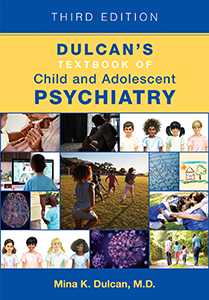Chapter 15.Anxiety Disorders
Sections
Excerpt
The anxiety disorders, which emerge during childhood or adolescence (Beesdo et al. 2010;Beesdo-Baum and Knappe 2012), are the most common mental health conditions across the life span (Merikangas et al. 2010a). These disorders are highly responsive to pharmacotherapy and cognitive-behavioral therapy (CBT) but are often underrecognized and undertreated. When left untreated, the anxiety disorders are associated with significant short- and long-term impairment (Ranøyen et al. 2018) and place children at high risk for subsequent mood disorders, substance use, disruptive behaviors, suicidal behavior, and educational underachievement (Asselmann et al. 2018). In this chapter, we highlight the features of “normal” anxiety and developmentally appropriate fears and worries, contrasted with the symptoms of an anxiety disorder, and discuss the management and treatment of these disorders.
Access content
To read the fulltext, please use one of the options below to sign in or purchase access.- Personal login
- Institutional Login
- Sign in via OpenAthens
- Register for access
-
Please login/register if you wish to pair your device and check access availability.
Not a subscriber?
PsychiatryOnline subscription options offer access to the DSM-5 library, books, journals, CME, and patient resources. This all-in-one virtual library provides psychiatrists and mental health professionals with key resources for diagnosis, treatment, research, and professional development.
Need more help? PsychiatryOnline Customer Service may be reached by emailing [email protected] or by calling 800-368-5777 (in the U.S.) or 703-907-7322 (outside the U.S.).



